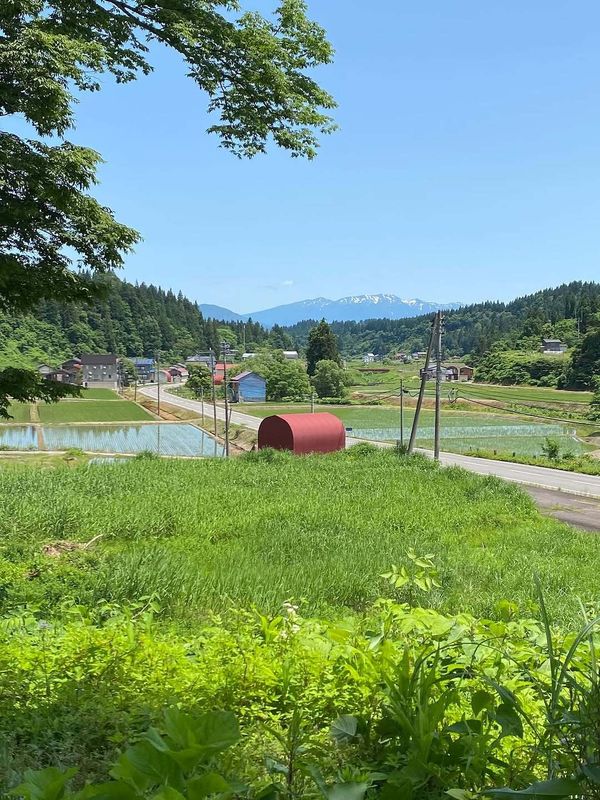Jun 20, 2025
Pros and cons of buying a house in rural Japan
For many of us living in Japan long-term, the city was our starting point because of convenience, connectivity, and opportunities. However, others (like myself!) have made the pivot to Japan's countryside. We only rent right now, but in the long term I would love to find property here to buy. It's a bit of a bucket list goal, if you will.
A recent survey by AlbaLink asked 420 homeowners living in rural Japan to share the best and worst parts of owning a home outside the city. Their answers revealed both the financial upsides along with the very real lifestyle challenges of making such a significant move. It's a topic that really interests me, and I've summarized some of the results below.

Benefits of rural home ownership in Japan
More space, both inside and out
The most common benefit cited by respondents was the sheer amount of space they have. With land prices far lower than in urban areas, people were able to afford larger plots and houses, with many even building sprawling one-story homes that would be unthinkable in the city.
For families, this means kids can play outside. For others, it means parking is easy, hobbies like gardening become feasible, and there is room to breathe. One person even mentioned being able to have a barbecue without worrying about the neighbors.
Lower property costs
Many buyers said they were able to build or buy a much nicer home than they'd be able to afford in the city. With lower land costs, they had more budget for design, materials, and layout.
Less pressure from neighbors
In rural areas, houses are usually further apart, which plays a role in lowering stress levels. For me as a parent, not worrying so much about my kids making noise, or feeling like I can relax without being observed add to my peace of mind, and that was echoed by some of the survey respondents.
A better environment for raising kids
Several respondents shared how rural life made parenting easier, and again this is a huge one in my own life. Fewer cars, nearby schools, and a slower pace means that my kids can play outside safely. Another point mentioned in the research was local education culture doesn't feel as competitive, which means both parents and kids feel less pressure! I'm sure some people might see that as a downside, though.
A closer connection to nature
The fifth most-mentioned advantage was access to nature. Being able to walk out your door and be surrounded by fields or mountains isn't just good for physical health, but mental health as well. One woman noted how living with the seasons and hearing the sounds of nature gave her a daily sense of calm, which is something I would agree with 100% from my own personal countryside experiences.
Of course, in saying all of that, rural life isn't a fairytale. While the benefits are significant, there are also some big tradeoffs that come with it.
Downsides of rural homeownership
Transportation can be a struggle
This was the top frustration mentioned by respondents by far. Life outside the city means limited public transport, and in most places, having a car is absolutely necessary. For households with multiple adults, this usually means two cars, so you're doubling up on fuel, insurance, and maintenance costs.
Local obligations can be time-consuming
Neighborhood associations are a fact of life in many rural areas. While these groups help manage local infrastructure and events, they can also feel burdensome if you're not accustomed to the system. Several people mentioned being expected to take on roles like group leader or participating in regular clean-ups, regardless of their personal schedules or interest.
Unlike in the city where anonymity is the norm (and I barely saw my neighbors!) rural communities often rely on close-knit systems that expect participation from everyone. Even if you're a foreigner! ;)
Social dynamics can feel intrusive
Not all respondents were happy with how tight-knit their rural communities were. Some found neighbor interactions helpful and supportive, while others said it felt like surveillance. One woman in her 20s described being asked intrusive questions, while a man in his 50s mentioned general "interference." This can be a culture shock for anyone used to urban privacy.
Seasonal challenges like snow and weeds
Depending on the region, seasonal upkeep can be physically exhausting. In snowy areas, residents said shoveling snow before work was a serious burden. Others in warmer areas mentioned how keeping up with weeding on large plots of land became a full-time summer job.
Lack of info before moving in
When asked what they wished they'd known before buying, the most common answer was details about the local community. Everything from unwritten garbage rules to neighborhood association expectations varies wildly from town to town.
One person said their neighborhood didn't penalize residents for skipping clean-up days, but just two blocks over, another area had fines. That kind of hyper-local variation is hard to research ahead of time, especially if you're a foreigner doing all that research in Japanese.
Have you bought a home here in Japan, and if so, was it urban or rural? If you’re an urban dweller, what factors would push you to move to the countryside, or what ones keep you away?



0 Comments